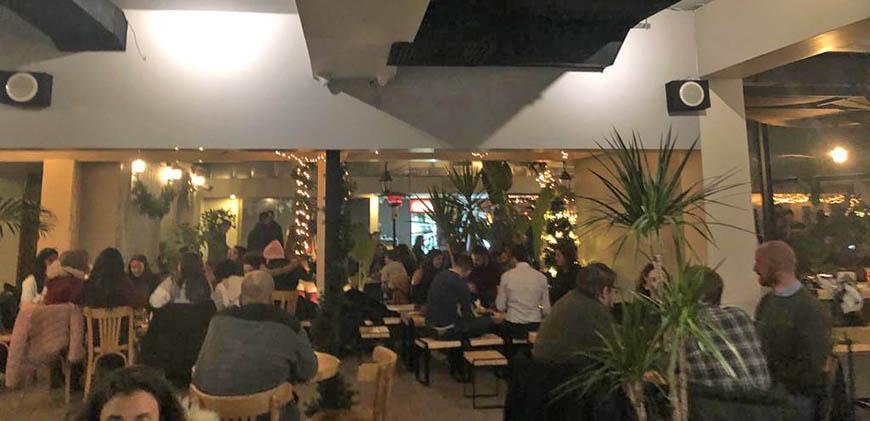- Local News
- Friday-2020-05-01 | 02:33 pm

April is his favourite month to be at the cafe as the weather is warm and the sweet, fresh smell of Jasmine he planted above the doorway lingers over the sidewalk patio.
"This year I looked up at the jasmine and, for the first time I saw a bird's nest, a big one,” Taqatqa told The Jordan Times. He grinned, adding: "Within a month, we humans disappeared and the animals came back to enjoy life.”
Even though Jordan has begun to gradually reopen from its curfew, few expect to see a full return of coffeehouses soon.
Hisham Abubaker, who runs a coffee roasting plant and five cafes throughout Amman, said that it is "still a shock” to see his cafes around the city so desolate.
"Every time I used to go to my shop in Jabal Luweibdeh, I would look to the left and find people who came to study. I would look right and see people in nice conversation, then I would go to the back patio and see people enjoying their coffee and talking with the barista. It was alive,” he said in an interview over the Zoom platform.
For locals, coffeehouse culture is simply a way of life. As Ali Mosleh, an engineer and Amman resident sat out with his friends sipping coffee late into the night in early March, he never imagined his favourite gathering places would shut down.
"It is sad to see all these places closed. We usually see them full of friends relaxing and enjoying life. These places remind us of the people we love,” he told The Jordan Times.
Due to the virus, there is a sense of foreboding for cafe owners throughout Amman like Abubaker and Taqatqa.
Still, Taqatqa said his 14 employees will receive their full salaries for April, while Abubaker said that for April and May, he will provide nearly 100 per cent of his 60 employee’s salaries.
Jordan’s social security system for unemployment guarantees around 50 per cent of salaries to employees, with the government contributing roughly 30 per cent and business owners contributing 20 per cent.
Cafe owners throughout Amman are now trying to think ahead to what a possible reopening would look like.
"The cafes will be the last sector in Jordan to fully open, because they are all about social engagement,” Abubaker said, "But maybe in a month or so we can do grab-and-go and then outdoor seating. Fifty per cent capacity is much better than 0 per cent.”
Taqatqa noted that a "big unknown” is how customers will react to the new threat the virus poses.
Coming up with a plan to open up and maintain social distance will test long-time cultural behaviours, he said.
The night Ali Mosleh and his group of friends sat outside, there were six people crammed shoulder to shoulder and each time an acquaintance or friend passed by the table, they were embraced with a cheek-to-cheek kiss.
Taqatqa said: "I don’t know how people will act with each other. Before coronavirus, a table for three used to become a table for eight. There was no social distance.”
"Today we are debt free, but most of the cafe owners in Amman are in debt and it is very challenging, but this is the normal status in Jordan,” Abubaker said.
"Sadly, some will go broke. Being a business owner in Jordan is a tough position, but if you survive this big struggle, it will make you stronger and you will learn how to be stronger financially,” he added.
Abubaker also sees this crisis serving as an opportunity for businesses to focus on increasing their digital presence.
For the business owner, nature, and nurturing quality business development is also a lesson to take from the virus. Each week, he visits all of his cafes around the city to water the plants. He said that, like his business, "if I leave the plants, they will die.”
Laughing, he said: "This is the only thing alive in the cafes now, the plants.”










